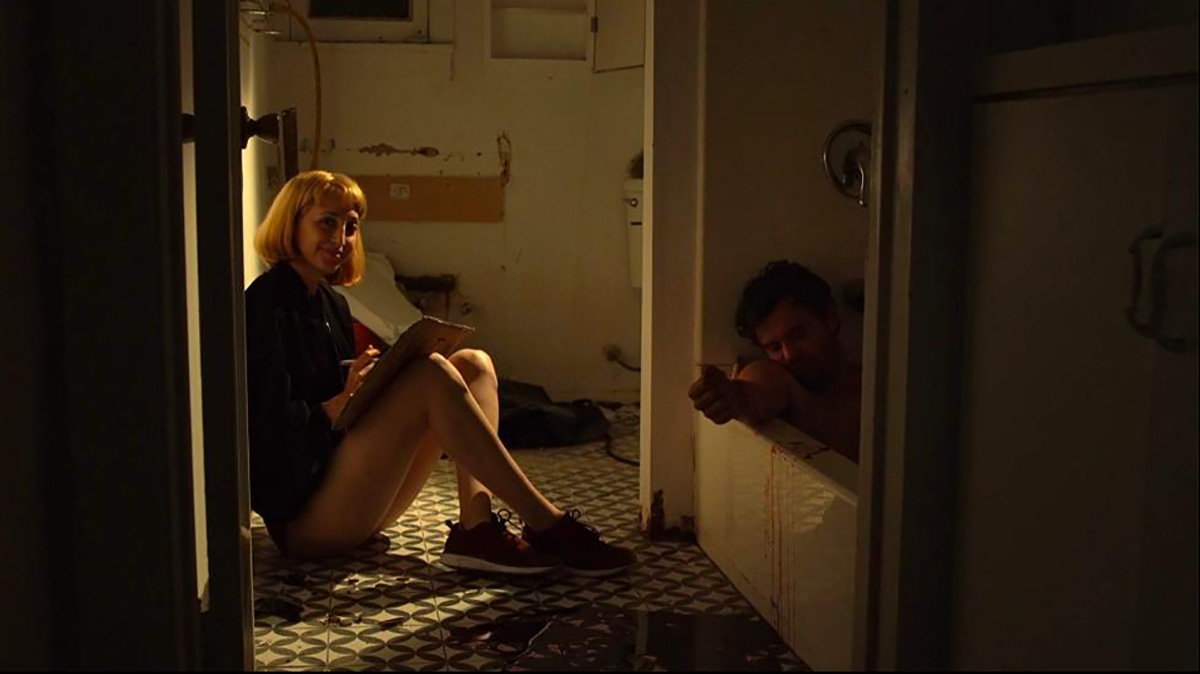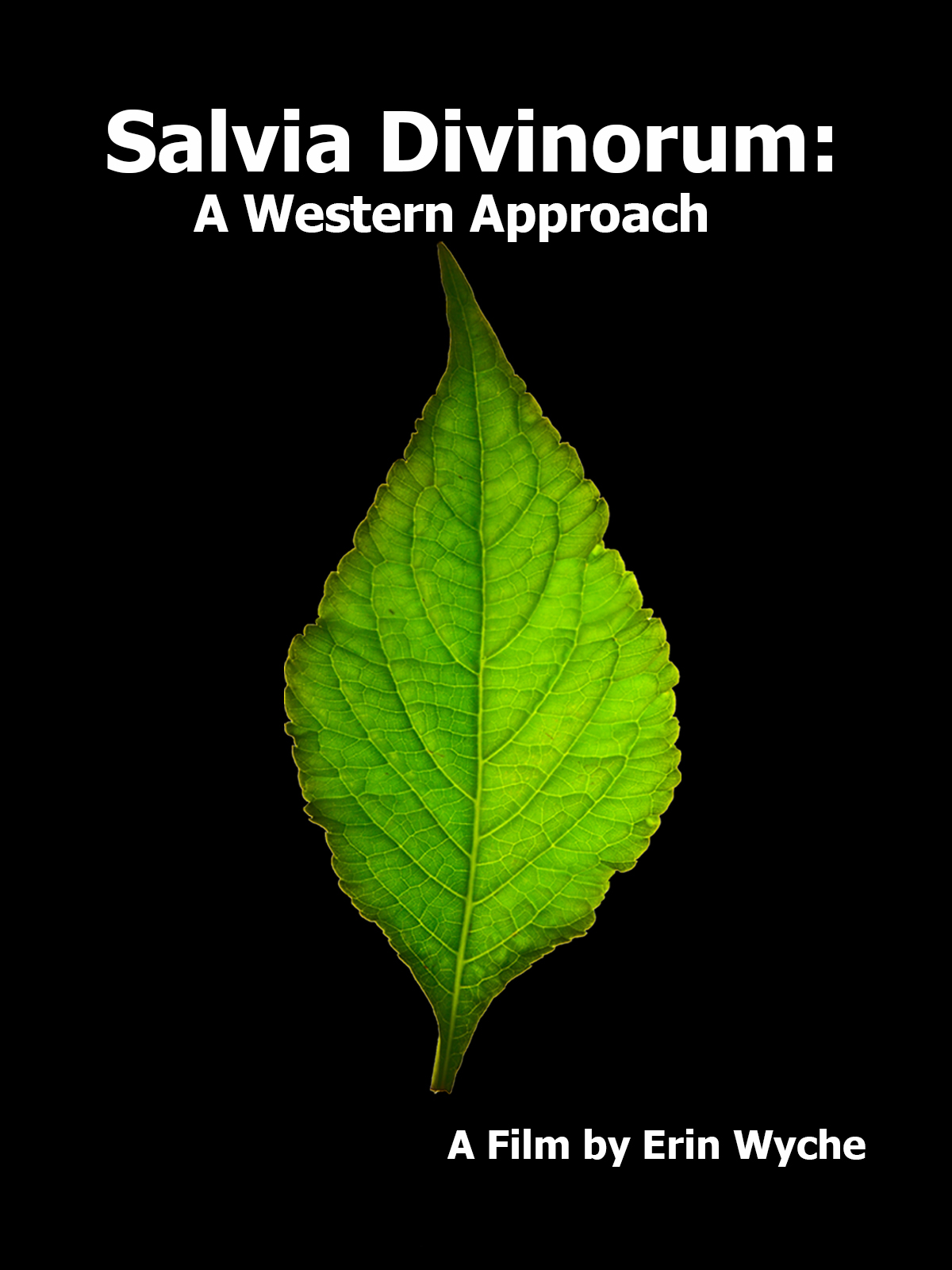Gillian Wallace Horvat’s I Blame Society Proves Satire Isn’t Dead, Even if Everyone Else Is
- Interview
Indie Film Junction | March 17, 2021

Indie Film Junction | March 17, 2021
Sometimes a movie comes along that perfectly encapsulates the struggle of getting a film made, and sometimes that movie is a metanarrative centered around an exaggerated and almost caricature-like depiction of the filmmaker combatting superficial support and becoming a murderer in the process. Gillian Wallace Horvat’s debut feature, co-written by Chase Williamson, skewers Hollywood’s performative inclusion efforts and illustrates how repeatedly suffering indignities on the arduous path to getting a film made can strip someone of the last vestiges of their humanity. I Blame Society is available on all major VOD platforms.
IFJ: Congratulations on the release of I Blame Society. Can you tell us what it’s about?
GWH: Thanks! It’s about a struggling filmmaker who feels like her friends and colleagues are losing faith in her ability to make a movie so she gets fixated on a compliment that some friends gave her once that she would make a good murderer. When she experiences setbacks in her personal and professional life, the need to prove herself at filmmaking and murdering become conflated in her mind — carnage ensues.
IFJ: You’ve said in interviews that your friends really did say that you could be a murderer. How did the exploration of that idea lend itself to a story about a female filmmaker’s struggle to get a movie made and to be treated with respect?
GWH: Good murderers and good filmmakers share a lot of traits: having a vision and knowing how to execute it, being able to improvise when obstacles appear, and having the conviction to keep going on a project while not second guessing yourself. I thought the convergence of those character profiles would be a good springboard to talk about the way that the film industry talks a big game about amplifying female voices while compartmentalizing and marginalizing them.
IFJ: How exaggerated was the general meeting scene compared to actual meetings you’ve had/endured?
GWH: Not very.
IFJ: If the executives in the movie gave the Gillian character a blank check to make the movie of her choice, what would that movie be, and do you think she still would have ended up a murderer?
GWH: It could be the script she sends her manager at the beginning or it could be with a blank check she might do something on a bigger scale, but I definitely think that if somebody had believed her she wouldn’t have ended up a murderer.
IFJ: Did playing an exaggerated version of yourself free you up to express complicated and challenging ideas in a more raw manner than if you portrayed a character with no direct link to yourself?
GWH: That’s a very interesting question. I suppose you’re right. In some ways I relied on the idea that no one could accuse me of not knowing how to play myself so I thought that I could experiment with something more mannered and the viewer would still have the assurance that my performance was grounded in real life.
IFJ: What was it like directing yourself in a feature compared to in a short? Would you want to do it again?
GWH: I’ve actually never directed myself before and I found the process weirdly disassociating. I don’t think I want to do it again.
IFJ: How large was the crew and what was the production schedule like?
GWH: It was very small, like a documentary crew. Our sound guy was also the boom op. The shooting schedule was 12 and ½ days with 2 days of pickups.
IFJ: What equipment did you use to make the film?
GWH: We used a Canon 5D for the flashbacks and then a Sony AS7, a Go Pro Hero 4, a Huawei cell phone, and an off brand Nest cam for the rest of the shoot.
IFJ: What did you learn from making I Blame Society that you wish you knew going into production?
GWH: I think we all learn from experience and even if somebody could have told me every setback and disappointment that would happen in the course of making the film, it’s unlikely that I could have prevented them from happening. We all get better at what we do by absorbing responsibility for our failures. But actually the shoot of I Blame Society went really smoothly, especially considering the budget!
IFJ: Did any elements of the film deviate substantially in post-production from what you envisioned?
GWH: Not that I can recall other than that I think we initially thought more of the original documentary footage would be included.
IFJ: What was your marketing and distribution strategy? Did a festival run factor into it?
GWH: As the director, I didn’t have any real say in those things, but if I had they would have been completely upended by the pandemic anyway. But yes, a festival run was always a part of the plan.
IFJ: Prior to I Blame Society, you shot several shorts that also blend dark comedy, absurdity, and satire. Many filmmakers struggle to find their voice in writing and directing, but you seem to have discovered yours early on. Was that something you arrived at organically, or was it a conscious target?
GWH: Before I was making films I was writing plays in high school and they always had that same tone and I got in a LOT of trouble for that when I was younger. If you looked at my report cards from when I was a child there’s a lot of “asks inappropriate questions.” I’ve always been a disruptive presence around authority, which I think is what’s at the core of satire, and I’ve always been hyperaware of the hypocrisy and cognitive dissonance around me. Revealing its absurdity in a way that both provokes and entertains the audience has always been my goal. I’ll always be stirring things up, for better or for worse.
IFJ: What did you learn from making the shorts that you were able to apply to I Blame Society?
GWH: I learned to always ask myself if what was in my head was making it onto the screen. It’s a shitty feeling when you realize that a story point you took for granted is not communicating because you didn’t get the shot to underline it. So shoot an insert just in case! You don’t have to use it.
IFJ: What’s next for you?
GWH: I’m developing a TV series right now that’s pretty wild, I’m very excited about it. I’m also currently writing a script about the pioneering sports broadcaster Anita Martini that I Blame Society’s DP, Olivia Kuan, is directing.
IFJ: Where can people find you to stay up to date on all your projects?
GWH: I’m on Twitter @gillianhorvat and on Instagram @cinnabonphile
Director Gillian Wallace Horvat
Runtime 84 min
A struggling filmmaker realizes that the skill set to make a movie is the same to commit the perfect murder.
More
Watch On Amazon Prime
Salvia Divinorum is an often misunderstood and powerful psychedelic plant used by the Mazatec shama...